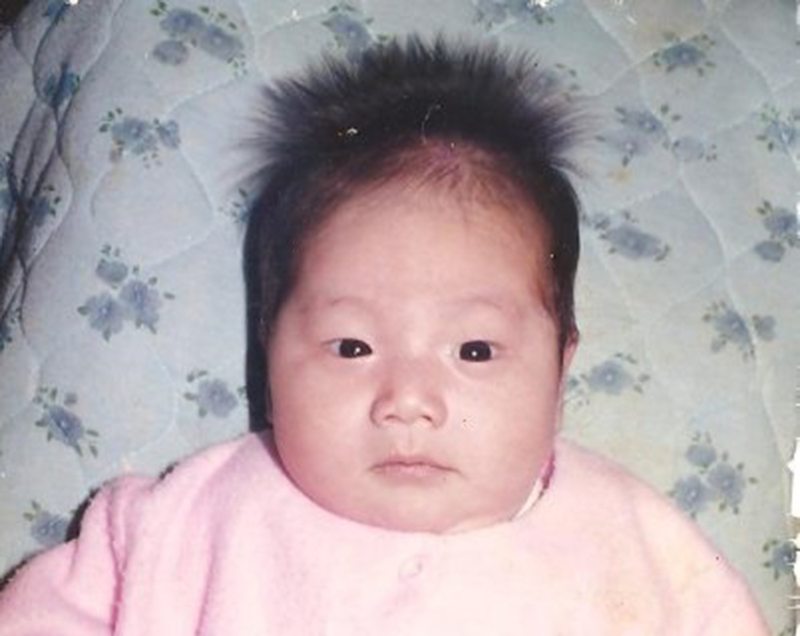As summer approaches, I’m reminded of the informational brochure for Korean heritage camp my parents used to give me around this time. It would be tucked neatly in a stack of summer program options. The purpose of the camp was to connect Asian American adoptees to their native culture. The smiling children on the cover looked just like me, yet somehow seemed so foreign. Each year, I pulled the brochure out of the pile and discarded it into the recycling bin- never stopping to think about what I was really throwing away.
May is Asian Pacific American Heritage Month. If “heritage” is significant enough to warrant a national proclamation, we must also recognize the loss experienced by Asian adoptees, who are stripped of theirs when adopted by Non-Asian families. As a Korean adoptee raised by White parents, the process of discovering and reclaiming my heritage has been a lifelong undertaking.

Overseas Korean adoption began after the Korean War in the 1950s. By the time I was born in 1986, an average of 24 children were leaving South Korea each day. Advocates for adoption paint transracial international adoptees as “lucky” to have families that want them and opportunities not available in their country of origin. But there are unspoken costs to adoption- including our cultural roots- and we need to talk openly about this loss.
Yes, I was the one who forfeited the opportunity to learn more about my heritage from the summer camp. What adoptive parents must understand is that adoptees are struggling to fulfill our basic human need for belonging and may discount our ethnic identity and heritage for the sake of the family. Growing up, all I wanted to do was blend in with my surroundings. Rejecting the idea of attending a Korean heritage summer camp was a reflection of the resentment I held towards my own racial differences.
Our complicated identities as transracial adoptees present unique challenges when it comes to forming healthy relationships and coping with feelings of abandonment, depression, and grief. Researchers at the University of Minnesota found that the odds of a reported suicide attempt were four times greater in adoptees compared to non-adoptees.
When transracial adoption first began, best practices suggested that no attention be given to the adoptee’s race or birth culture. This “colorblind” methodology removes the responsibility from adoptive parents to understand how race and ethnicity shapes their child’s’ experiences, leaving adoptees more vulnerable to identity crises and alienation.
A study of transracial Korean American adoptees conducted by Joy Hoffman and Edlyn Vallejo Peña found that strong positive ethnic identity correlated with psychological well-being. Cultural socialization is also thought to promote pride in one’s heritage and help teach strategies to cope with racism and discrimination. Roots, by their very definition, keep us grounded. Without access to our birth heritage, transracial adoptees are left in a state of limbo- hovering between biological and adopted cultures, never fitting in fully with either.

Transracial international adoptees often tend to seek more information about their birth country as they get older. I was 18 years old when I first learned how to use chopsticks. A group of college friends from my school’s Asian Cultural Exchange organization taught me the skill over the course of a meal at Joy Yee restaurant in Chicago’s Chinatown. It was the first authentic Asian culinary experience of my life and just one step in a long pathway to explore my roots. The journey eventually culminated in an emotional reunion with my birth family. Even the small act of knowing how to properly eat with chopsticks during our first meal in Korea together provided a silent connection between us.
Asian Pacific American Heritage Month presents an opportunity for adoptive parents to consider the importance of heritage on their child’s identity/sense of belonging and – as a family – explore ways to restore what has been lost through adoption. Take part in local celebrations or create shared traditions that weave in aspects of their child’s birth culture. Meet Asian American mentors who can be racial mirrors for younger adoptees. Research the history of Asians in America and advocate with us beyond the month of May.
Most importantly- listen to the voices of Asian adoptees and learn from our experiences. A lack of cultural knowledge is its own form of inheritance. We weren’t bequeathed the traditions or history of our motherland. Our heritage is a lifetime of searching, creating, and learning- more than one summer camp could ever teach.
Stephanie Drenka is the Founding Editor of VISIBLE Magazine, Co-founder of the Dallas Asian American Historical Society, and a Facilitator/Coach with The OpEd Project.


